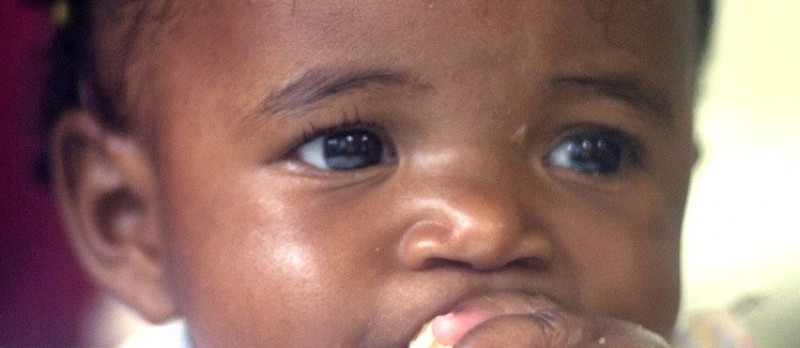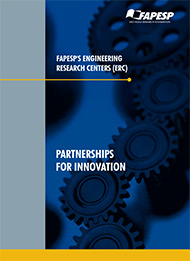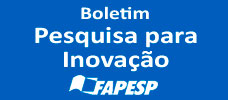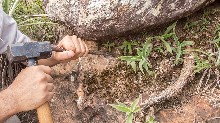FAPESP launches Brazilian Center for Early Child Development

17 de fevereiro de 2021
By Claudia Izique | Agência FAPESP – FAPESP launched the Brazilian Center for Early Child Development (BCECD), in partnership with the Maria Cecilia Souto Vidigal Foundation and with INSPER as host, on February 3 in São Paulo.
BCECD will operate along similar lines to the Engineering Research Centers and Applied Research Centers (ERCs/ARCs) established by FAPESP in partnership with companies. Its mission will be to carry out original research on early child development (ECD), integrate data on ECD from different sources, and organize e-learning courses and workshops for public-sector professionals, high-school students, undergraduates, and graduate students about the impact of ECD on later life outcomes.
The three partner organizations will invest BRL 16 million in BCECD for a period of up to ten years.
“BCECD is a mission-oriented research center that will use a multidisciplinary approach to pursue solutions to a problem as complex as early childhood development,” said Luiz Eugênio Mello, Scientific Director of FAPESP, at the launch event.
The center’s principal investigator is Naércio Menezes Filho, a professor at INSPER and the University of São Paulo (USP). It will conduct research that can provide input for public policies and professional practices relating to the development of children in the first six years of their lives.
“Preventive actions taken in this phase can have impacts that will affect children throughout their lives, improving their health, behavior, learning, and professional career,” Menezes Filho said.
The center’s initiatives will include the development of a platform to store data collected from a group of children, and integration of the data with school and healthcare administrative records.
“We will start with a three-year pilot project in a city, combining available instruments such as the Child Health Record with the administrative data stored by health and education authorities,” Menezes Filho said. The platform with all this data will be open to public-sector administrators in charge of home visit programs throughout Brazil.
The impact of these monitoring activities on child development will be evaluated by means of a methodology that compares cohorts born in the city before and after the intervention with a control group from elsewhere.
The center will collect biological data relating to sleep patterns, functional neural networks, polygenic risk scores, and epigenetic markers, look for correlations with Child Health Records and lifespan evolution, and implement complementary programs to improve the skills of parents and professionals in different sectors who are close to the families of children from before birth to age 6.
“We will also work with community health agents and assess the impact of these interventions on child development using randomized clinical trials,” Menezes Filho said.
Evidence-based solutions
Alongside six other institutions, the Maria Cecília Souto Vidigal Foundation is part of an international coalition that for ten years has conducted projects designed to improve early childhood development conditions and build bridges between scientific knowledge and society. The other institutions are the Bernard van Leer Foundation, Harvard University’s Center on the Developing Child, the David Rockefeller Center for Latin American Studies, INSPER, Porticus Foundation, and the University of São Paulo’s Medical School (FM-USP).
“Science results from consistent practices and research, and with FAPESP’s support we’ll be able to use scientific knowledge to contribute to public policymaking,” said Mariana Luz, CEO of the Maria Cecília Souto Vidigal Foundation, during the BCECD launch event. For example, she recalled, research helped connect cognitive development and learning in the 1940s, as well as linking these factors to psychological theories in the 1970s. Brazil’s Constitution contains articles on children’s rights because of this knowledge. In 1990, the Brazilian Congress passed the Bill of Children’s and Adolescents’ Rights (ECA), which defined the difference between children and adolescents.
INSPER has been part of the coalition since its inception ten years ago. “I was persuaded by Jack Shonkoff [Director of the Center on the Developing Child at Harvard, also present at the launch event],” said Claudio Haddad, Chair of INSPER’s Board. In the early stages, excellent results were produced by seminars, workshops and other activities involving academics, civil servants and leaders of other organizations. “We now need to continue with this effort to engage with policymakers, who must follow the science and develop evidence-based solutions.”
For Roberta Ricardes, head of child health technical staff at the São Paulo State Department of Health, the establishment of BCECD is “a milestone”. Child development has been a key concern since the early 2000s, when it was included in the state’s health plan. “Implementing the program in 101 cities across the state was a huge challenge,” she said. Educators are now also participating in the program, which uses Child Health Records to assemble information from the various areas involved.
The BCECD launch, which was also attended by Sylvio Canuto, USP’s Pro-Rector for Research, was followed by a panel discussion on Brazilian challenges and global prospects for childhood development featuring Harvard’s Marcia Castro and Aisha Yousafzai, and Flavio Cunha from Rice University in the US.
A video of the launch and panel discussion can be watched at www.youtube.com/watch?v=lwD0lMHN-R8&feature=emb_title (from 05min40sec).
Photo: Miguel Boayayan/Pesquisa FAPESP



